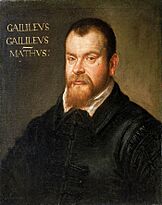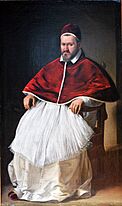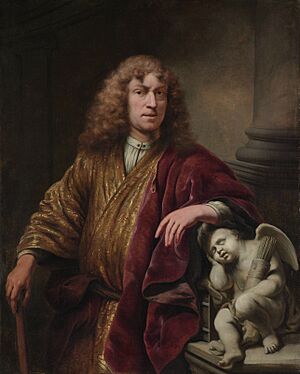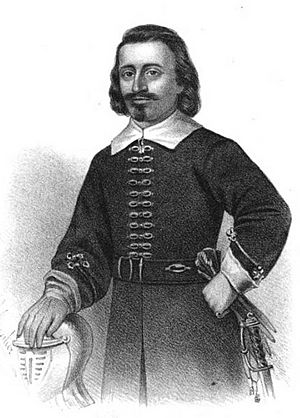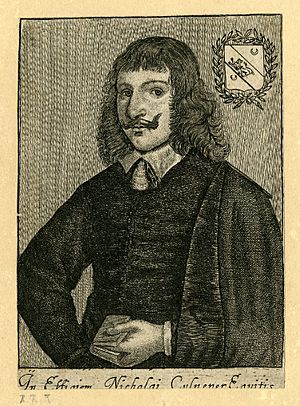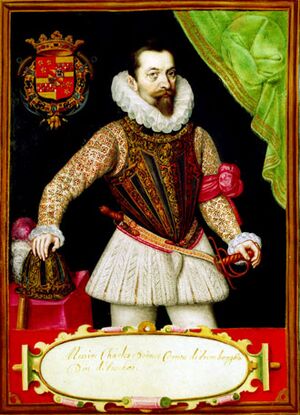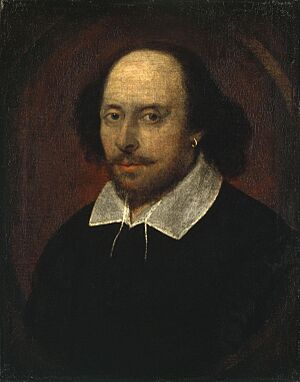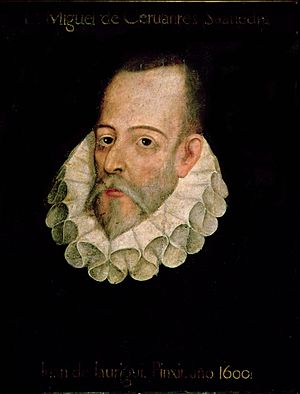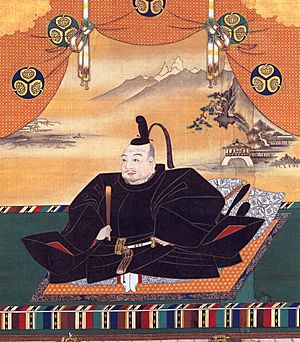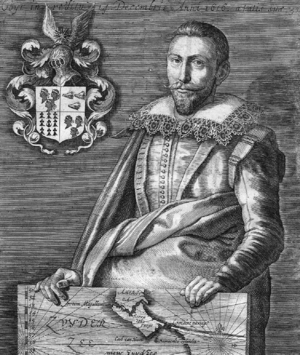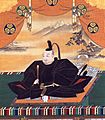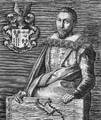This article is about the year 1616.
The year 1616 was a time of many important events around the world. People explored new lands, scientists made big discoveries, and famous writers created their best works. It was a year that shaped history in many ways, from new colonies being started to changes in how people understood the universe.
March 11: Galileo assures Pope Paul V that he will not teach Copernican theory
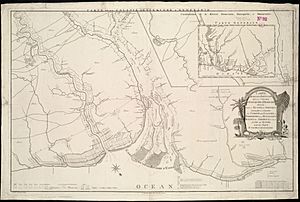
The Dutch establish the colony of Essequibo
1616 (MDCXVI) was a leap year starting on Friday of the Gregorian calendar and a leap year starting on Monday of the Julian calendar, the 1616th year of the Common Era (CE) and Anno Domini (AD) designations, the 616th year of the 2nd millennium, the 16th year of the 17th century, and the 7th year of the 1610s decade. As of the start of 1616, the Gregorian calendar was 10 days ahead of the Julian calendar, which remained in localized use until 1923.
Big Events of 1616
January to March: New Discoveries and Decisions
- January 1 – King James I of England watched a play called The Golden Age Restored. It was a funny play by Ben Jonson about a court favorite who had lost his power. The King liked it so much he asked to see it again on January 6.
- January 3 – A new favorite of King James I, George Villiers, became the Master of the Horse. This helped improve horse breeding. He also received a special award and a lot of land later in the year.
- January 10 – An English diplomat named Sir Thomas Roe met with the Mughal Emperor Jahangir in India. This meeting helped open the door for the British to have a presence in India.
- January 12 – The city of Belém, Brazil, was founded by Portuguese captain Francisco Caldeira Castelo Branco. It was built on the Amazon River delta.
- January 15 – Explorer Samuel de Champlain visited the Huron, Petun, and Ottawa Native American groups near the Great Lakes. This was his last trip in North America before going back to France. He helped establish New France (Canada).
- January 29 – Dutch captain Willem Schouten sailed around the southern tip of South America. He named it Cape Horn after his hometown in Holland.
- January – A young boy named António Vieira arrived in Brazil from Portugal. He would later become an important diplomat, writer, and a leader in the Catholic Church. He also protected indigenous peoples in Brazil.
- February 1 – King James I of England gave Ben Jonson a yearly payment. This made Jonson the unofficial poet laureate (a special poet for the country).
- February 17 – The Manchurian leader Nurhaci declared himself the emperor of China. He started the Later Jin dynasty.
- February 19 – The Mayon Volcano in the Philippines had its first recorded eruption. It is the most active volcano in the Philippines.
- February 24 – Some Catholic Church experts said that the idea of the Sun staying still was "foolish" and against the Bible.
- February 26 – The famous astronomer Galileo Galilei was told by the Catholic Church not to teach that the Earth moves around the Sun. He was warned not to support this idea in any way.
- February 28 – After a riot against Jewish people in Frankfurt, Germany, the leader of the mob was executed. Jewish people, who had been forced out of the city, were allowed to return thanks to the Holy Roman Emperor.
- March 5 – The book De revolutionibus orbium coelestium by Nicolaus Copernicus, which said the Earth orbits the Sun, was put on the Index of Forbidden Books by the Catholic Church.
- March 11
- Galileo Galilei met with Pope Paul V. The Pope promised Galileo protection, and Galileo agreed not to teach the Copernican ideas for several years.
- An English Catholic priest, Thomas Atkinson, was executed in York at age 70.
- March 19
- March 26–August 30 – English explorer William Baffin explored Baffin Bay while looking for the Northwest Passage. His expedition discovered new areas and reached a record northern latitude.
- March 31 – The Mughal Emperor Jahangir gave his wife the title Nur Jahan, meaning 'Light of the World'.
- March – A Spanish fleet defeated a Tunisian fleet in Tunisia.
April to June: Treaties and Trials
- May 3 – The Treaty of Loudun was signed, which ended a series of rebellions in France.
- May 25 – The Earl of Somerset and his wife were found guilty of murder. They were sent to prison instead of being executed. This event made the King's court seem corrupt.
- June 12 – Pocahontas (now named Rebecca) arrived in England with her husband, John Rolfe, and their son. They were brought by the colonial governor, Sir Thomas Dale, to help raise money for the Virginia colony.
July to September: Volcanoes and Trade Rules
- July 6 – The Manam Volcano in Papua New Guinea had its first recorded eruption. It formed a large island.
- July 20 – Hugh O'Neill, 2nd Earl of Tyrone, an Irish soldier, died in exile in Rome. This ended the "Flight of the Earls" from Ireland.
- August 8 – The Tokugawa shogunate in Japan made new rules. They said that foreigners, except for Chinese, could not travel freely or trade outside of the ports of Nagasaki and Hirado.
- September 15 – The first free public school in Europe for non-aristocratic children opened in Frascati, Italy.
October to December: Royal Events and New Ideas
Other Important Events of 1616
Ongoing Events
- The Uskok War (1615–1618) continued. This was a conflict between the Austrians and Spanish against the Venetians, Dutch, and English.
People Born in 1616
January to March
April to June
July to September
October to December
People Who Passed Away in 1616
January to March
April to June
July to September
October to December
Images for kids
-
-
-
The Dutch establish the colony of Essequibo
-
-
-
-
-
-
-
-
-
See also
 In Spanish: 1616 para niños
In Spanish: 1616 para niños
 In Spanish: 1616 para niños
In Spanish: 1616 para niños





